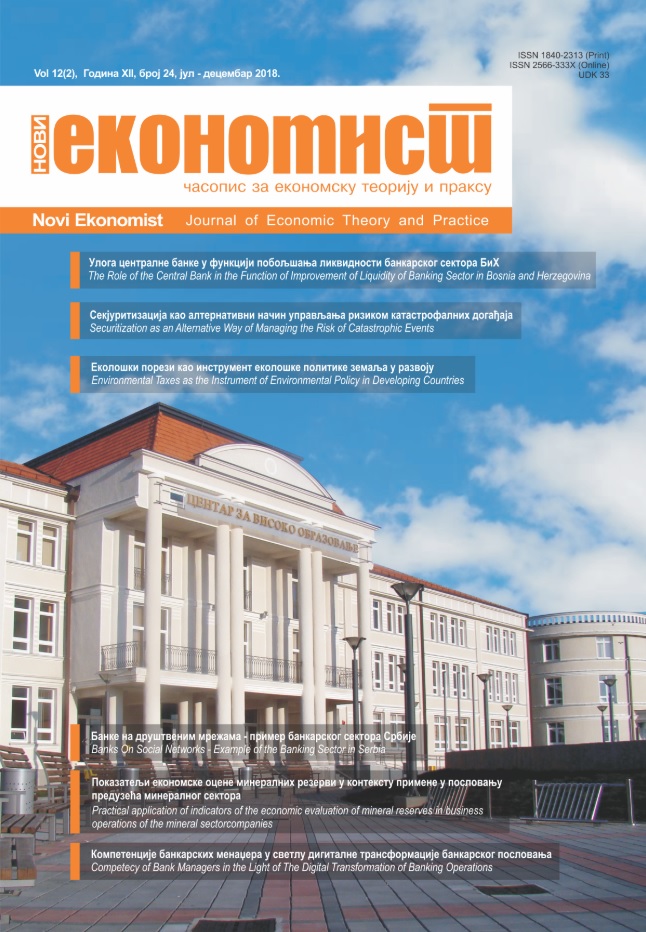THE ROLE OF THE CENTRAL BANK IN THE FUNCTION OF IMPROVEMENT OF LIQUIDITY OF BANKING SECTOR IN BOSNIA AND HERZEGOVINA
DOI:
https://doi.org/10.7251/NOE1824008MAbstract
The monetary policy of Bosnia and
Herzegovina is rather limited because it is based
on the principles of a currency board
characterized by the impossibility of implementing
the basic monetary policy instruments in
comparison with the monetary policy of the
European Union. However, the constant presence
of European integrations should point the need for
a more drastic change in the monetary policy of
Bosnia and Herzegovina. By entering the
European Monetary Union (EMU), the monetary
territory of Bosnia and Herzegovina will become
one of the branches of the European Central Bank
(ECB). In addition, it is not difficult to conclude
why the Law about the Central Bank of Bosnia and
Herzegovina has been adopted with the first laws
of the Dayton Agreement, if it is known that the
largest part of the banking system, and therefore
the financial market, is owned by foreign banks.
This work will point out the significance of the
Central Bank of Bosnia and Herzegovina, as one
of the most important factors for maintaining the
permanent liquidity of the banking sector in
Bosnia and Herzegovina. The possibilities and
limitations of the Central Bank of Bosnia and
Herzegovina will be determined, with the
assumption of macroeconomic sustainability over
a longer period of time. The need of reforming the
banking system in Bosnia and Herzegovina will be
analyzed through the constant implementation of
the Basel standards with the increasing
participation of foreign banks in the Bosnia and
Herzegovina. It will be determined the impact of
the implementation of the Basel III in the banking
industry in Bosnia and Herzegovina and its
consequences on the banking and economic
system.models, on the ways of financing the
elimination of adverse consequences of natural
disasters.

